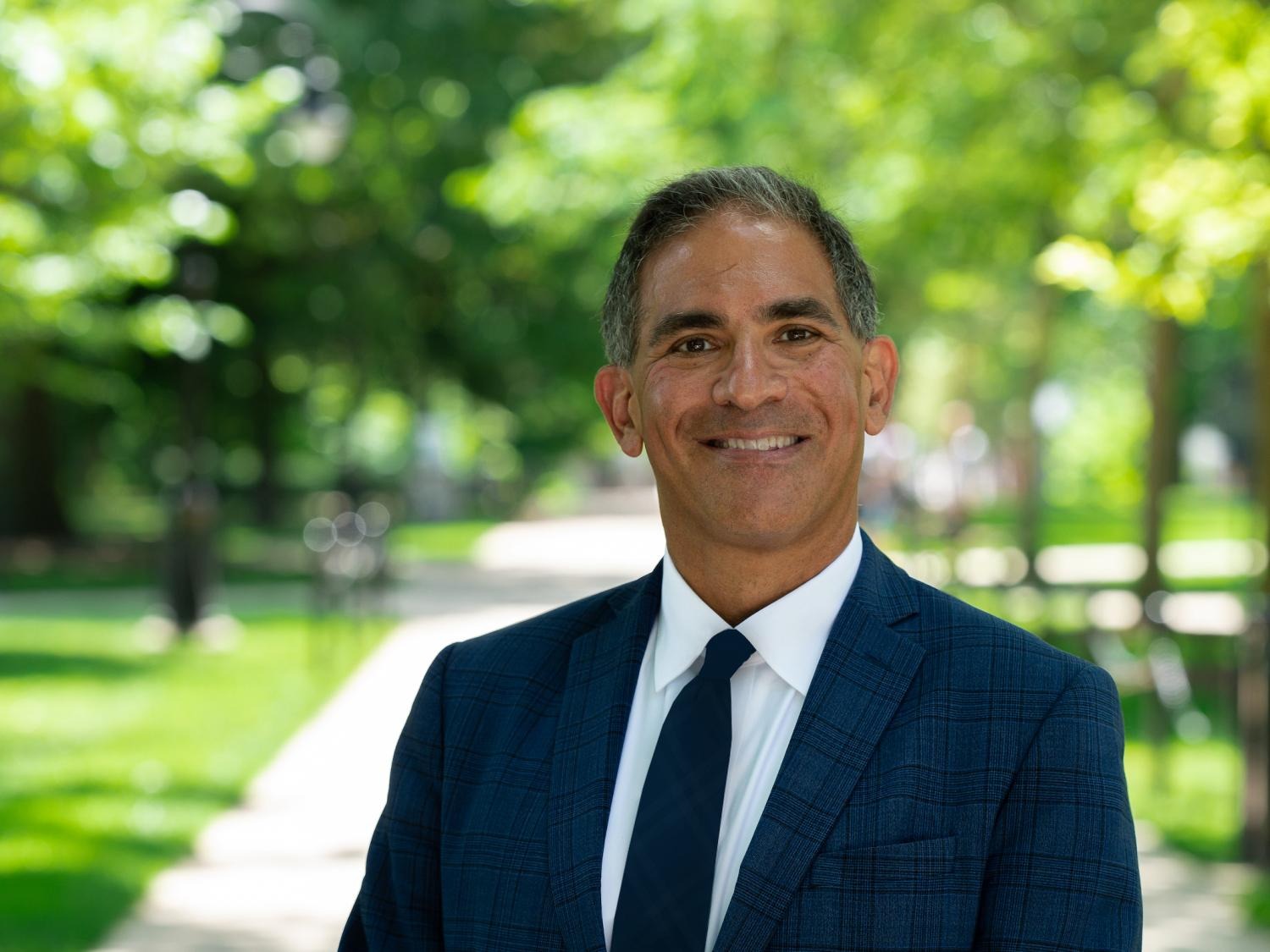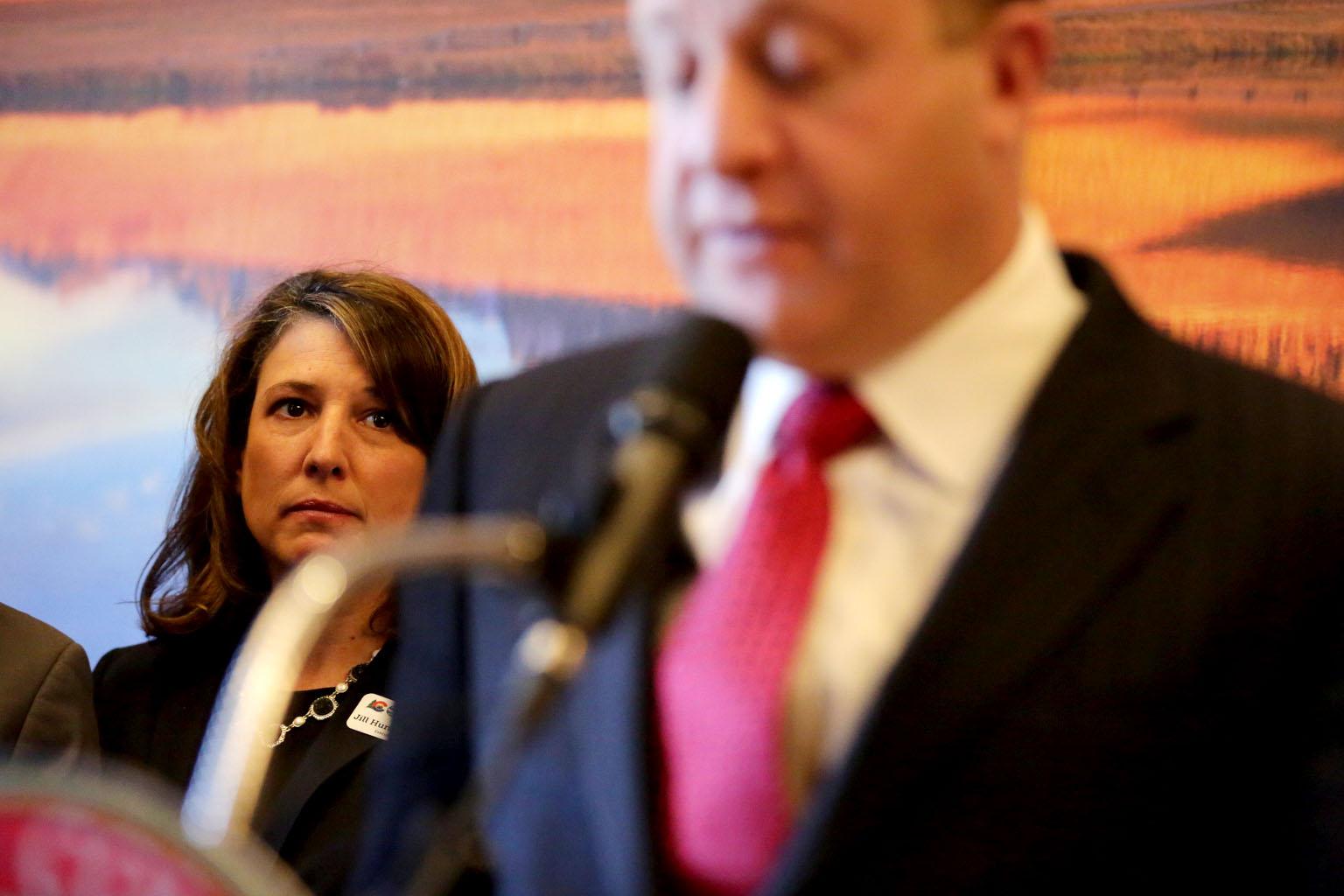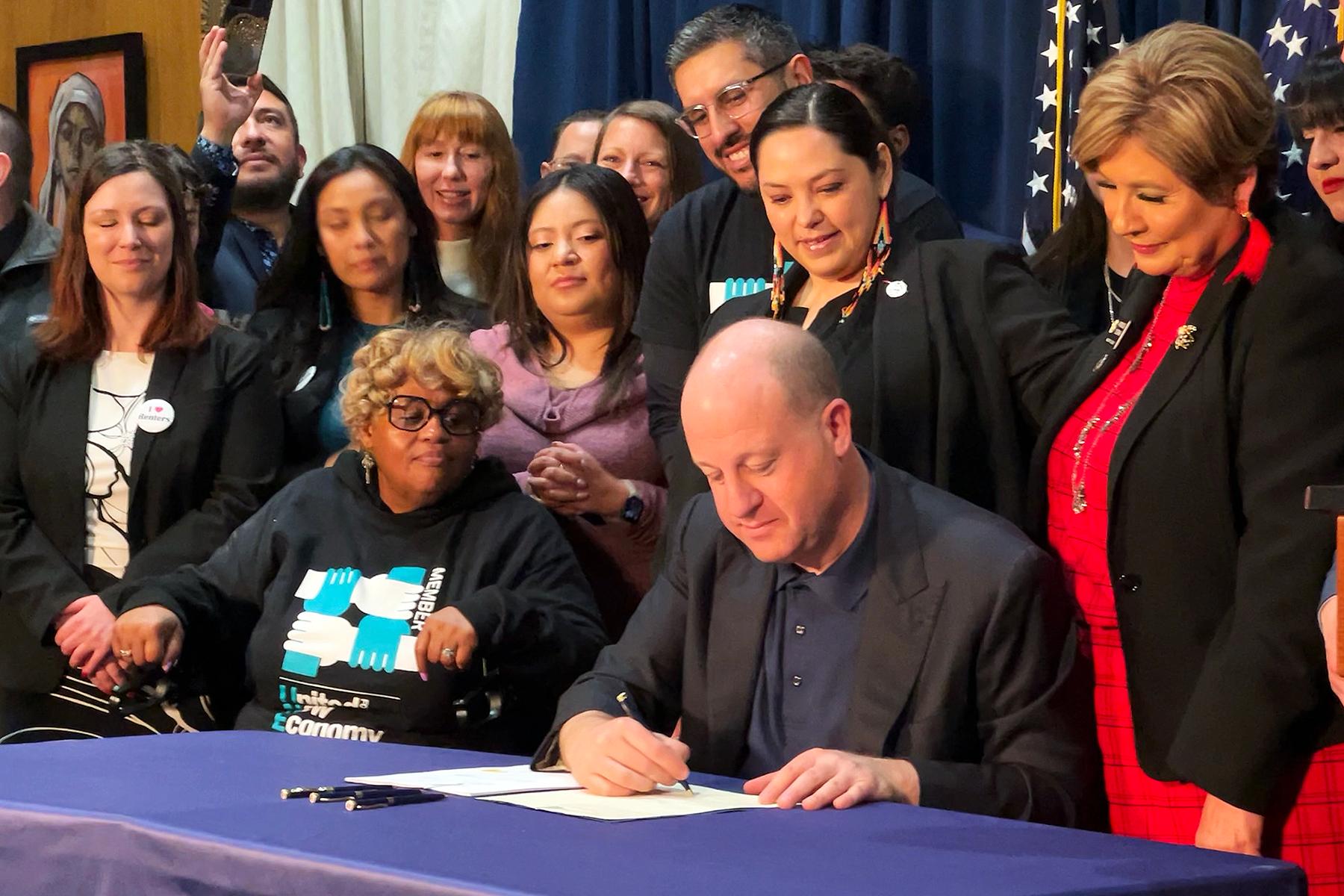For people with mental illnesses, it can be as hard to get treatment for their conditions as to deal with the illness itself. Insurance policies generally don’t pay as generously for mental illnesses as they do for physical ailments, this despite a federal law requiring “parity” in coverage for mental illness and addiction. That can leave people in life-threatening situations with nowhere to turn.
There’s a movement to help people get treatment, and to get insurance companies to pay for it. Thursday, nearly 300 people turned out for a pro-parity event in Denver. CPR Health Reporter Eric Whitney was there.
This is a transcript of Eric’s story.
Reporter: Dafna Michaelson Jenet knows firsthand how challenging it can be for people with mental illnesses to connect to treatment. Her son struggles with cognitive and emotional problems.
Michaelson Jenet: I received a call from his Denver public school, that the police and an ambulance had been called to the school, as our now 9-year-old son had tried to commit suicide by jumping out of the second story window of his classroom.
Reporter: Michaelson Jenet said her insurance company told her both before and after that event that the kinds of specialized mental health treatment her son needed weren’t covered. Like treatment he could only get at Children’s Hospital.
Michaelson Jenet: It really didn’t matter. Children’s Hospital was where he needed to be, and Children’s Hospital was where we were taking him whether or not it meant, and it did, that I will be in a payment plan with Children’s Hospital for most of the rest of my life.
Reporter: The effort to get health insurers to pay for mental health and addiction treatment on par with how they pay for physical illnesses is decades old. Former state lawmaker Moe Keller said Colorado passed a bill in 1997 mandating coverage for six specific mental illnesses.
Keller: Ten years later we passed another bill that added additional language, we had eating disorders, PTSD, substance use disorders. But unfortunately it was only for the large group market, at that time it was the only way we could get it passed out of the legislature.
Reporter: So people who bought individual insurance policies or were in small group plans didn’t get the coverage.
The following year, then-Rhode Island Congressman Patrick Kennedy helped pass a federal mental health parity law. But there’s ambiguity in exactly how it applies until U.S. Health and Human Services Secretary Kathleen Sebelius approves specific rules. Getting action on those rules is one reason Kennedy started holding events like this one all across the country last spring.
Kennedy: Secretary Sebelius told me yesterday that the final rule on the Mental Health Parity and Addiction Equity Act is eminent. That’s good news.
Reporter: Insurance companies took a verbal beating at Thursday night’s event. Organizers say they invited insurance representatives to offer their perspective on the challenges of paying for mental health treatment, but they declined. Nor did the insurance industry’s state trade group respond to Colorado Public Radio’s request to comment for this story.
But Patrick Kennedy cautioned against demonizing all health insurance companies.
Kennedy: When I was fighting for parity, my local Blue Cross, Blue Shield was a leader in the country, and decided to be out front. They had to drag along the others at the time who were insuring many of the folks in my state. So, there are bad actors, and if the good actors don’t want to be painted with the same brush they have an obligation to show up and be involved.
Reporter: Kennedy and others who spoke at the event Thursday emphasized that getting equal treatment for the mentally ill isn’t just an insurance company issue. They said social stigma and ignorance among health care providers contribute to the mentally ill having trouble getting the help they need. Kennedy says he’s optimistic that the country is starting to recognize the true costs of untreated mental illness, and that the desire to save money and lives will help turn things around.
[Photo: CPR]









